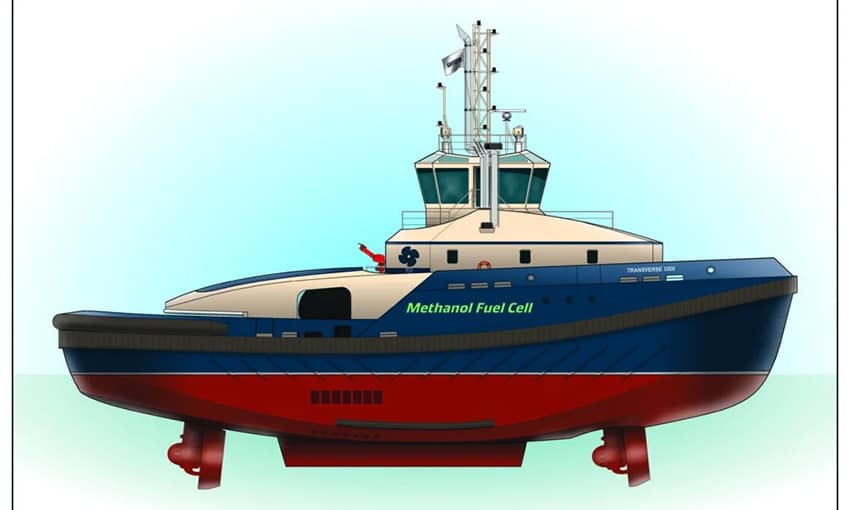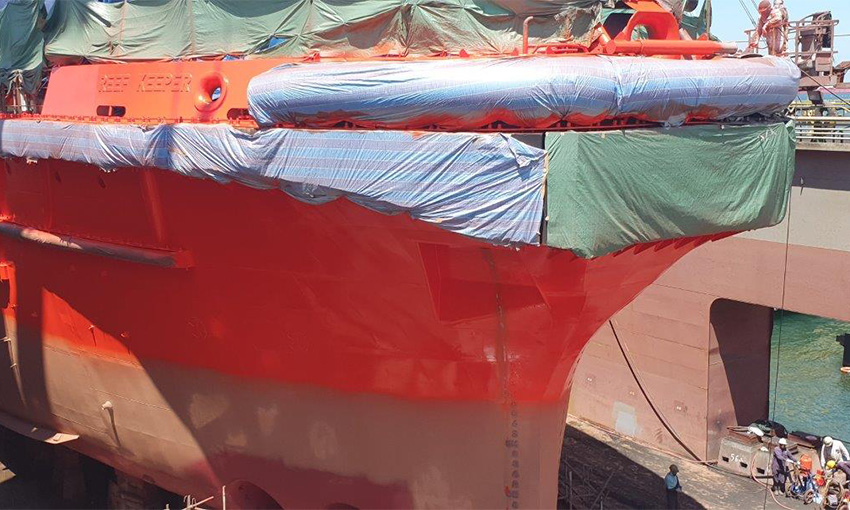DENMARK-based towage provider Svitzer has launched the second phase of its project to design what it says will be the world’s first methanol hybrid fuel cell tug.
Svitzer said it has conducted technical studies to establish the feasibility of this type of vessel accommodating the real-world operational requirements of a tug.
Work will now begin between Svitzer and naval architect company Robert Allan to design the tug.
The next phase will include work to complete the vessel design, scope considerations for vessel construction, and onboard equipment selection necessary to build the vessel.
The methanol hybrid fuel cell tug will use an electrical propulsion system with methanol fuel cells and batteries delivering a self-sustained tug with longer endurance and fewer operational constraints than a purely battery-powered vessel.
Secondary methanol-fuelled generators will provide backup power if required without the need for a secondary fuel.
According to Svitzer, the tug running on green methanol would prevent approximately 1300 tonnes of carbon dioxide annually from being emitted into the atmosphere, compared to fossil-fuel-based vessels of the same dimensions within Svitzer’s global fleet.
The design of the MHFC tug will be a joint project between Svitzer and Robert Allan using Svitzer’s TRAnsverse tug design as the platform.
Svitzer head of decarbonisation Gareth Prowse said the project is a major milestone in the company’s commitment to decarbonising its global fleet.
“The combination of fuel cell technology and green methanol will result in improved operational efficiencies, resulting in less fuel consumption and lower emissions,” Mr Prowse said.
“We’re delighted to be collaborating with Robert Allan Ltd. to design the MHFC tug and look forward to bringing on new partners to construct the vessel which will operate at the Port of Gothenburg in Sweden.”
The MHFC is expected to enter operations in the second half of 2025 at the Port of Gothenburg.
Port of Gothenburg CEO Göran Eriksson said the port has set targets to reduce shipping emissions from the port area by 70% by 2030.
“To deliver on that ambition, the transition of shipping lines from fossil fuels to more sustainable fuels such as green methanol is critically important,” he said.
“Svitzer’s decision to design and construct the world’s first methanol hybrid fuel cell tug is a major milestone which sets the example for the long-term decarbonisation of global towage services. We’re excited to welcome this pioneering new vessel to the Port of Gothenburg when it enters into operation in 2025.”





